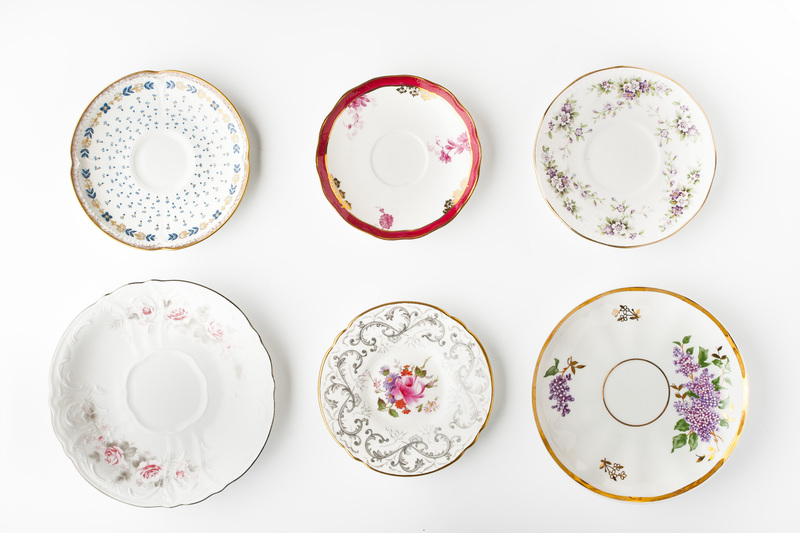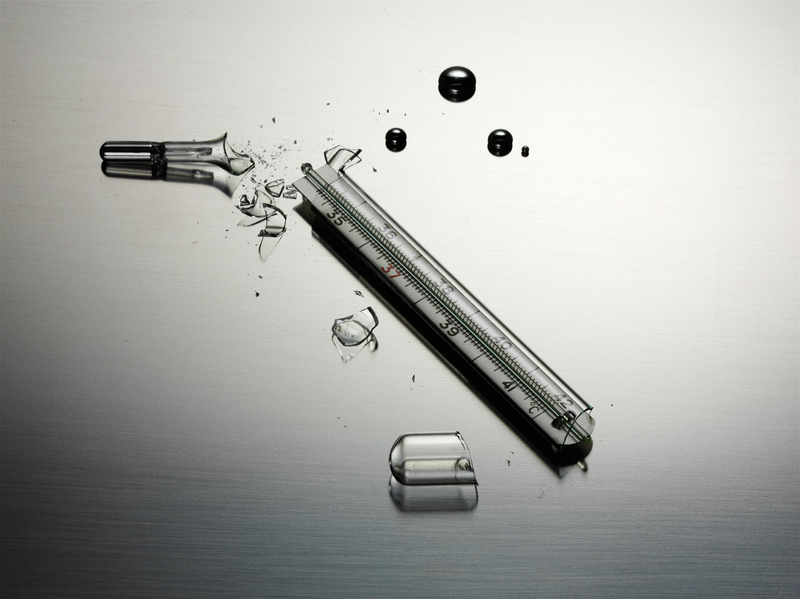Transform Your Mindset: Discover Stress Relief through De-cluttering
If you've ever found yourself overwhelmed by piles of papers, bursting closets, or chaotic rooms, you're not alone. Clutter can creep into our homes, workspaces, and even our minds. Over time, this accumulation doesn't just take up physical space--it can weigh heavily on your mental wellbeing. In this comprehensive guide, we'll uncover how decluttering can serve as a powerful tool for stress relief and explore actionable ways to transform your mindset through organized living.
Understanding the Link Between Clutter and Stress
Clutter is more than just a visual nuisance; it's a psychological stressor. Studies have shown that living in a disorganized environment can increase cortisol, the body's primary stress hormone. When your home or office feels chaotic, it can be hard to relax, focus, or feel truly at peace. That's why so many wellness experts advocate for decluttering as a means of achieving stress relief.
How Clutter Affects Your Mindset
- Overstimulation: Clutter bombards our senses with excessive stimuli, making it difficult to concentrate.
- Feelings of Guilt: Piles of unused items can create subconscious guilt and regret.
- Decision Fatigue: More possessions mean more choices, leading to mental exhaustion.
- Reduced Productivity: A messy environment can hinder your ability to get things done.
- Impeded Relaxation: Your home should be a sanctuary, not a source of stress.
By clearing your space, you're not just tidying up--you're reshaping your mood, energy, and even your habits.

The Mindset Shift: Embracing Minimalism and Purposeful Living
De-cluttering is not simply about getting rid of things. It's about shifting your mindset from scarcity and attachment to abundance and liberation. Let's explore how changing your thinking can ignite a positive feedback loop of self-improvement and emotional balance.
Key Principles of a Decluttered Mindset
- Intentionality: Be deliberate about what you allow into your space.
- Value over Volume: Prioritize items and experiences that spark joy or serve a vital purpose.
- Letting Go: Release possessions tied to negative memories or burdensome expectations.
- Embracing Simplicity: Less can truly be more when it comes to creating a peaceful environment.
Proven Benefits: How Decluttering Relieves Stress
A decluttered space can provide immediate and long-term relief from daily stressors. Here's why:
- Enhanced Mental Clarity: An organized environment helps your mind focus, process information, and make effective decisions.
- Boosted Mood: Reduced clutter is linked to a decrease in anxiety and an increase in overall happiness.
- Improved Sleep: A tidy bedroom can promote better rest and relaxation.
- Healthier Habits: Organized spaces foster routines that support wellness, such as meal prep or exercise.
- Increased Energy: With less mess to worry about, you'll reclaim time and boost your motivation.
Scientific Studies Supporting Decluttering for Stress Relief
Research published in the Personality and Social Psychology Bulletin found that women living in cluttered homes had higher levels of cortisol and reported greater fatigue throughout the day. Another study by Princeton University Neuroscience Institute showed that visual clutter limits your brain's ability to process information, making you more susceptible to stress.
Steps to Transform Your Life through Decluttering
Ready to start your journey to a calmer mind and healthier lifestyle? Follow these practical steps to discover stress relief through decluttering.
1. Set Your Goals and Visualize Your Ideal Space
- Define your purpose--why do you want to declutter? For more peace, productivity, or simply happiness?
- Visualize your dream environment and remind yourself of the benefits.
2. Start Small and Be Consistent
- Begin with a single drawer or shelf. Completing a small area can create momentum.
- Set a timer for 15-30 minutes a day to avoid overwhelm.
3. Sort Items into Categories
- Keep: Essential items you use and love.
- Donate: Gently used possessions that could benefit others.
- Discard or Recycle: Broken, outdated, or no-longer-needed items.
4. Create Functional Organizational Systems
- Utilize baskets, labeled bins, or drawer organizers for efficiency.
- Store items by frequency of use--keep everyday essentials within easy reach.
5. Develop New Habits
- Implement a "one in, one out" rule for new possessions.
- Commit to regular tidying to maintain your peaceful space.
6. Focus on Mindful Consumption
- Before purchasing, ask if the item adds real value to your life.
- Seek out quality over quantity to avoid future clutter.
The Emotional Side of Decluttering: Letting Go
Parting with possessions can stir up unexpected emotions--guilt, nostalgia, or anxiety. However, transforming your mindset means learning to release these ties and give yourself permission to move on.
- Acknowledge any emotions connected to specific items.
- Thank these possessions for their role in your journey, then consciously let them go.
- Consider taking photos of sentimental objects before donating or recycling.
Remember: Your memories and identity are not limited to things. Letting go of clutter is an act of self-love and a purposeful step toward a stress-free lifestyle.
Decluttering and Mindfulness: A Synergistic Path to Stress Relief
Many mindfulness practices emphasize being present and fully aware. The act of decluttering, if done intentionally, can be a mindfulness exercise in itself.
How to Bring Mindfulness into Your Decluttering Process
- Stay attentive to your internal thoughts and feelings as you sort possessions.
- Breathe deeply and notice any shifts in mood as you clear space.
- Appreciate the simplicity and peace that develops with each item you let go of.
Decluttering Beyond the Physical: Digital and Mental Spaces
Clutter isn't limited to what we see. Digital clutter--unstable inboxes, overflowing cloud storage, constant notifications--can be just as distracting. Mental clutter, such as negative self-talk or scattered thoughts, can also undermine stress relief efforts.
Tips for Digital Decluttering
- Unsubscribe from emails and notifications that don't serve you.
- Organize files and photos with clear folders and naming systems.
- Regularly back up important data and delete redundancies.
- Limit screen time for greater mental clarity.
Clearing Mental Clutter
- Practice journaling to process your thoughts and gain perspective.
- Engage in daily meditation or breathwork to center your mind.
- Use checklists or planners to offload tasks from your mind onto paper.
Discover Sustainable, Long-Term Stress Relief Through Decluttering
Decluttering is not a one-time event but a lifestyle choice--a way of living with intention, clarity, and self-care. When you consistently curate your environment, you foster a cycle of positivity, creativity, and resilience to stress.
- Regular Review: Schedule monthly or seasonal decluttering sessions.
- Invite Support: Enlist friends, family, or professional organizers for encouragement.
- Celebrate Progress: Acknowledge milestones, no matter how small.
De-cluttering Success Stories: Real-Life Mindset Transformations
"I always thought I needed more storage. Once I started de-cluttering, I realized I needed less stuff--and the peace was immediate," shares *Maria, 34*. After organizing her environment, Maria reported better sleep, reduced anxiety, and more time to spend on hobbies.
After a decade of collecting books and papers, *Jeremy, 51*, dedicated one weekend per month to decluttering. He describes the resulting clarity and productivity as "life-changing," adding, "I feel energized when working from a tidy space."
Start Your Decluttering Journey Today
Ready for your own transformation? Begin with a single step today, whether it's clearing your desk, deleting old emails, or donating unused clothes. By embracing the power of decluttering for stress relief, you're not only simplifying your surroundings, but unlocking your true potential for happiness, growth, and peace of mind.
- Remember--decluttering is a journey, not a race.
- Be gentle with yourself as you adapt to new habits.
- Each item released is a step closer to a calm, organized, and joyful life.
Embrace decluttering as a way to relieve stress and transform your mindset, and discover a lighter, more fulfilling existence.

Frequently Asked Questions about Decluttering and Stress Relief
What should I do if I feel overwhelmed by how much I need to declutter?
Start small. Pick one category or area and dedicate a short, defined period each day. Progress--no matter how gradual--helps you build momentum and confidence.
How can I maintain a clutter-free space long-term?
Implement habits like "one in, one out," regular mini-cleanups, and mindful shopping to prevent future buildup. Acknowledge that maintaining organization is an ongoing practice.
Is it normal to feel emotional about getting rid of possessions?
Absolutely. Allow yourself to feel and process these emotions. Transforming your mindset involves respecting memories, yet prioritizing your present wellbeing.
How quickly will I notice stress relief benefits?
Many people experience immediate relief after decluttering a single space. The cumulative effects expand the more consistently you practice organized living.
Conclusion: Unlock a Stress-Free Mindset with Decluttering
The path to stress relief doesn't always require drastic changes--sometimes, the simplest acts can have the greatest impact. By decluttering your surroundings and transforming your mindset, you pave the way for a life filled with clarity, balance, and peace. Begin today and watch as both your space and spirit become lighter, one mindful choice at a time.
Transform your mindset, discover stress relief, and embrace the joy of living clutter-free!